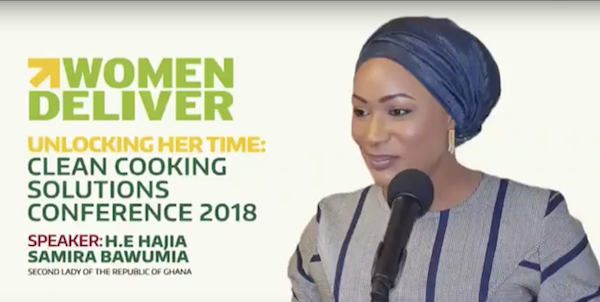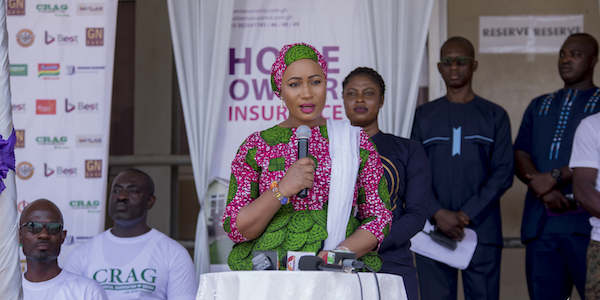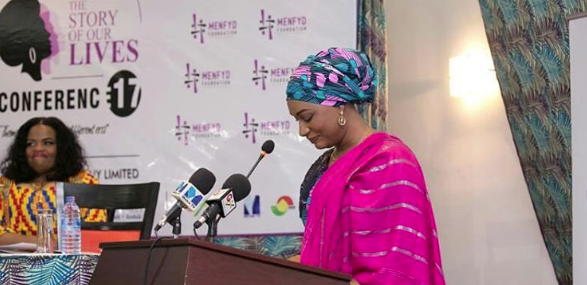Mrs. Funmi Roberts, Chairperson WIMBIZ, Mrs. Aishah Ahmad, Dr. Sade Adebanjo, Hon Ursula Owusu-Ekuful, distinguished ladies,
It gives me great pleasure to address this gathering of accomplished women at the maiden Ghana Conference organized by the Women in Management, Business and Public Service (WIMBIZ). Thank you so much for inviting me to this historic event.
Globally, women have played and continue to play an important role in nation building; contributing immensely in all facets of life. In Africa however, the sad truth is that women are victims of vulnerable conditions owing to lingering gender inequalities, domestic violence, societal prejudices, among other issues that limit their ability to fulfill their potential.
African leaders have made remarkable attempts at the emancipation of women in recent times; legislating against gender inequalities and formulating policies on quota systems favorable to women. However, we are still a long way away from achieving gender equality.
The wrong perception that women belong to a lesser class than their male counterparts, or perhaps have roles that are supposed to be traditionally feminine has led to the full entrenchment of gender inequality in our society. This perception is unfortunately strengthened by our traditional and cultural practices.
In spite of the global advocacy against gender inequality and commendable strides made towards achieving gender parity, an unbelievable rate of gender disparity still remains in our economic and political spheres.
Although we have made some progress, women still struggle to earn their place in governance and in the labour market. More men are voted into power than women.
In the history of Africa, there has been only one elected female President, one got to the position after the demise of the President while the other five served in acting capacities.
Many women have built successful careers but only a few attain leadership positions. Women remain underrepresented in leadership and management level positions in the public and private sectors. Less than one-third of senior and middle-management positions are held by women.
In business, women still find it difficult to access adequate finance to scale-up their businesses for growth and sustainability. Financial inclusion for women, especially in rural areas is still a major problem.
The United Nations’ Sustainable Development Goal 5 underscores the need for gender equality, financial inclusion and women’s rights to economic resources such as land and property. However, achieving gender equality and sustainable development by 2030 will require a lot more commitment than we see today.
I would like to commend the WIMBIZ Board of Trustees and the Executive Council on their choice of the theme ‘Breaking New Frontiers’.
The theme is appropriate, and I say this because this is a time when women all over the world are thriving in the face of limitations and setting the pace in innovations and technological advancements geared towards sustainable development.
African women also need to go the extra mile in adding value to themselves as well as making impact in their world. We need to be more determined to succeed against all odds. We must widen our horizon in knowledge and acquisition of valuable skills that can make us globally competitive. Our place is at the top and it is about time we created the continent we desire!
I also celebrate WIMBIZ for their resilience in advancing the cause of women for 16 years through their platform.
This is no mean feat as many women-focused organizations often become discouraged with the slow rate of improvement in gender parity. The improvement is like a tiny drop of sand in an ocean.
We are glad that you have decided to expand your reach beyond Nigeria. We are more excited at your choice of our dear country; Ghana. This means that more women in Ghana will be inspired and empowered and connect with other forward thinking women.
Women empowerment is a major focus of this current administration. We are committed to creating an enabling environment for women to thrive and fulfill their full potential.
I would conclude by saying that limiting women’s access to opportunities that ultimately empower them is counterproductive.
Gender equality is essential for the achievement of sustainable development and a prosperous world. Thus, I actively encourage governments across the world, particularly in Africa and the private sector to remain steadfast in overcoming gender inequality, whilst expanding female leadership.
Once again I thank you for this opportunity, I congratulate WIMBIZ for its maiden international conference and wish you fruitful deliberations at today’s discussions.







